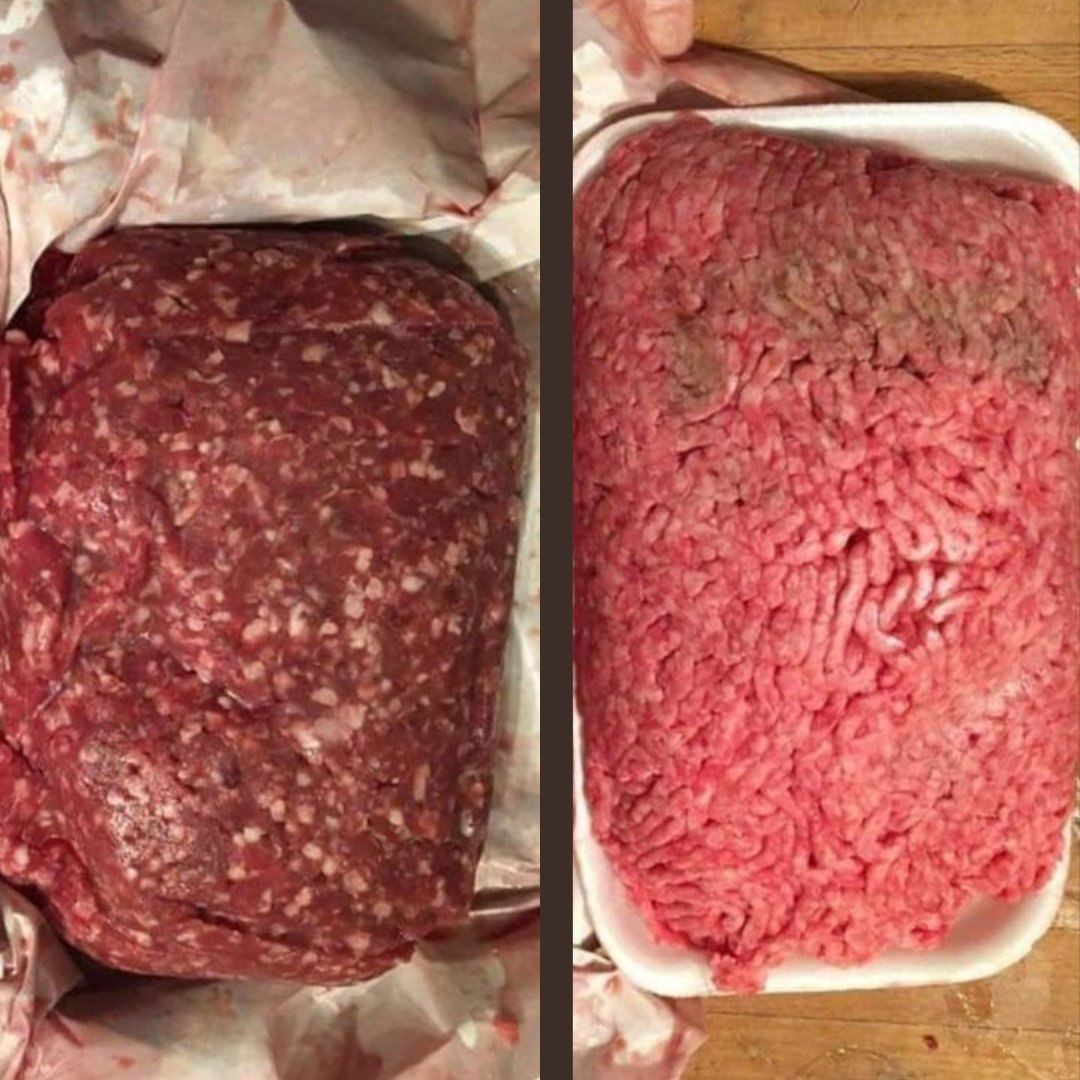ADVERTISEMENT
**3. Packaging:**
Store-bought beef is typically vacuum-sealed or shrink-wrapped in plastic. This packaging can keep the meat looking fresh for a longer period, but it also limits airflow and can lead to excess moisture buildup, which can affect the texture and flavor of the beef.
Farm-fresh beef, depending on where you purchase it, may be wrapped in paper or butcher paper, which allows the meat to breathe and age more naturally. In some cases, you may also find farm-fresh beef that has been dry-aged, which significantly enhances its flavor and tenderness.
### The Hidden Differences
**1. Quality of Life for the Animal:**
One of the most significant differences between store-bought and farm-fresh beef is how the cattle are raised. Cattle raised on factory farms (which often supply the meat sold in grocery stores) are typically confined to small spaces and are fed a grain-heavy diet designed to fatten them up quickly. This results in beef that may lack flavor and can sometimes be tougher or less tender due to the stressed environment in which the animal is raised.
Farm-fresh beef, on the other hand, usually comes from cows that are raised on smaller, family-owned farms where they have access to pasture and are often grass-fed or pasture-raised. These cows typically have a more natural diet, which leads to more flavorful and healthier beef. The humane treatment of the animal often translates into better overall quality, both in terms of flavor and ethical considerations.
**2. Diet and Nutrition:**
The diet of the cattle has a huge impact on the quality and nutritional profile of the meat. Store-bought beef often comes from cattle that are fed a diet primarily consisting of grain, which may include corn and soybeans. This results in beef that is higher in omega-6 fatty acids and can have a less desirable balance of nutrients.
Farm-fresh beef, especially from grass-fed cattle, contains a higher amount of omega-3 fatty acids, antioxidants, and vitamins like Vitamin E and beta-carotene. Grass-fed beef is typically leaner, but it is also nutritionally richer and can have a more distinct flavor profile that many people find superior to grain-fed beef.
**3. Hormones and Antibiotics:**
Another hidden difference between store-bought and farm-fresh beef is the use of hormones and antibiotics. In many factory farms, cattle are given hormones to promote faster growth and are routinely treated with antibiotics to prevent disease in crowded living conditions. While the USDA regulates hormone use and antibiotic levels in beef, concerns remain about potential health risks related to these substances.
Farm-fresh beef, particularly from farms that use sustainable and organic practices, is less likely to have been exposed to hormones or antibiotics. Many small, local farms avoid the use of these chemicals, which means that the beef you purchase is more likely to be free from these substances and raised in a more natural, healthier environment.
**4. Environmental Impact:**
The environmental impact of producing store-bought beef is another important consideration. Large-scale industrial farming operations typically require significant resources, including vast amounts of water, feed, and energy. The carbon footprint of factory-farmed beef is considerably higher, due to transportation, large-scale operations, and the feed requirements of the animals.
Farm-fresh beef from local or sustainable farms tends to have a smaller environmental footprint. These farms often use rotational grazing practices, which help maintain healthy soil, reduce water usage, and improve biodiversity. By supporting local farms, you’re not only getting better quality beef, but you’re also making a more eco-conscious choice.
### Conclusion: The Benefits of Choosing Farm-Fresh Beef
While store-bought beef is often more convenient and affordable, farm-fresh beef offers numerous advantages, both visible and hidden. The quality, flavor, and nutritional benefits of farm-fresh beef are unparalleled, especially when the animals are raised on pasture with natural diets and humane practices. Although it may come at a higher price, the benefits of supporting local farms, ensuring the ethical treatment of animals, and consuming a healthier, more nutritious product make it a worthwhile investment for many people.
The next time you’re at the grocery store, consider the differences between store-bought beef and farm-fresh beef. Your taste buds, health, and the environment will thank you!
